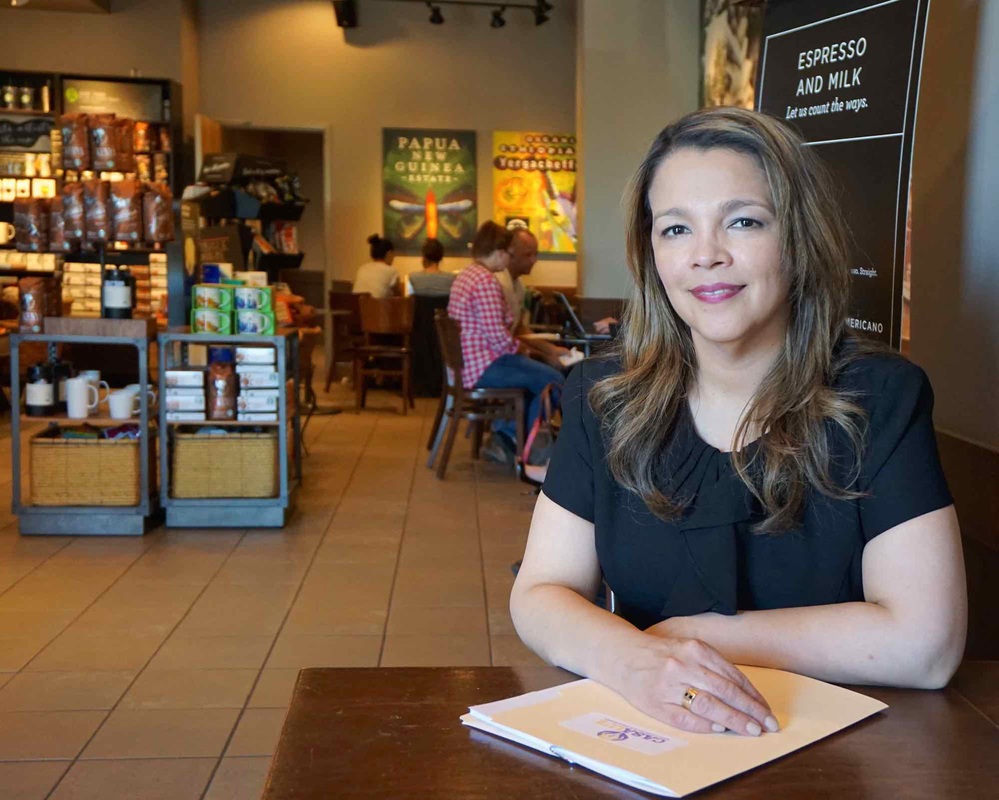“My father was a doctor in Venezuela where I grew up, and I was the one always following along behind him. Watching how he dealt with situations made me realize that when I see something wrong, I cannot turn away. I have to take action. I was very shy as a teenager, but with determination and persistence, I overcame that. I had to. I became an attorney and was the voice for my clients, so I had to be able to stand up for them.
“One of the things I saw when I moved to Memphis was the need for bilingual, bicultural services for immigrants who are victims of crime, especially crimes like domestic violence and sexual assault. Many Latino women (most of the victims of domestic abuse are women) come from countries where corruption is rampant and the society is male-dominated. They have seen firsthand what happens when they go to the authorities. In one case I worked with, for example, the woman had been severely beaten and almost lost an eye. She went to the police in her home country and was told, ‘Be glad I’m not your husband. I wouldn’t have left you looking like that; I would have just killed you.’ So these women have experiences that make them distrustful of the police, and then they move to this country and don’t know that it’s any different. They’re afraid of the police and they're afraid to report crimes. If they do call the police to the home, often the officers end up talking to the husband rather than the victim because his English is better (having learned the language on his job). The woman doesn’t know what they are saying, only that the policeman leaves and nothing has been done. There’s a language hotline that officers can use to help with communication, but it’s more than a language issue. If someone goes to the dentist, anyone can translate, but especially for these very personal assaults, you need someone who really understands the cultural background and can be sensitive to that. As an advocate for these women, I narrated an awareness video for MPD that is now part of their mandatory training and promotes cultural sensitivity when dealing with Hispanic victims of crime, but more than that is needed. That’s why CazaLuz was founded. It’s the first and only culturally specific domestic violence and sexual assault agency in the region exclusively serving the Hispanic and Latino communities in the Memphis/Shelby County area.
“There are people who say, ‘Well, they’re just immigrants. What happens to them is not my problem.’ No. We cannot turn away. If people are afraid to report crime---any crime, not just domestic assault---or they don't trust the authorities enough to cooperate and see the case through the court system, then the criminal is still out there, the cycle repeats itself in the next generation, and the safety of the whole community is affected.”
“One of the things I saw when I moved to Memphis was the need for bilingual, bicultural services for immigrants who are victims of crime, especially crimes like domestic violence and sexual assault. Many Latino women (most of the victims of domestic abuse are women) come from countries where corruption is rampant and the society is male-dominated. They have seen firsthand what happens when they go to the authorities. In one case I worked with, for example, the woman had been severely beaten and almost lost an eye. She went to the police in her home country and was told, ‘Be glad I’m not your husband. I wouldn’t have left you looking like that; I would have just killed you.’ So these women have experiences that make them distrustful of the police, and then they move to this country and don’t know that it’s any different. They’re afraid of the police and they're afraid to report crimes. If they do call the police to the home, often the officers end up talking to the husband rather than the victim because his English is better (having learned the language on his job). The woman doesn’t know what they are saying, only that the policeman leaves and nothing has been done. There’s a language hotline that officers can use to help with communication, but it’s more than a language issue. If someone goes to the dentist, anyone can translate, but especially for these very personal assaults, you need someone who really understands the cultural background and can be sensitive to that. As an advocate for these women, I narrated an awareness video for MPD that is now part of their mandatory training and promotes cultural sensitivity when dealing with Hispanic victims of crime, but more than that is needed. That’s why CazaLuz was founded. It’s the first and only culturally specific domestic violence and sexual assault agency in the region exclusively serving the Hispanic and Latino communities in the Memphis/Shelby County area.
“There are people who say, ‘Well, they’re just immigrants. What happens to them is not my problem.’ No. We cannot turn away. If people are afraid to report crime---any crime, not just domestic assault---or they don't trust the authorities enough to cooperate and see the case through the court system, then the criminal is still out there, the cycle repeats itself in the next generation, and the safety of the whole community is affected.”
Articles from La Prensa Latina ---
FB: CasaLuz Memphis
RELATED POSTS:
- MPD Strives to Improve Service to Hispanic Community, p. 2 (Spanish) & p. 4 (English) - Nov 11, 2015
- CazaLuz, A New Hope for Hispanic Victims, p. 2 (Spanish) & p. 4 (English) - Jan 24, 2016
FB: CasaLuz Memphis
RELATED POSTS:

 RSS Feed
RSS Feed